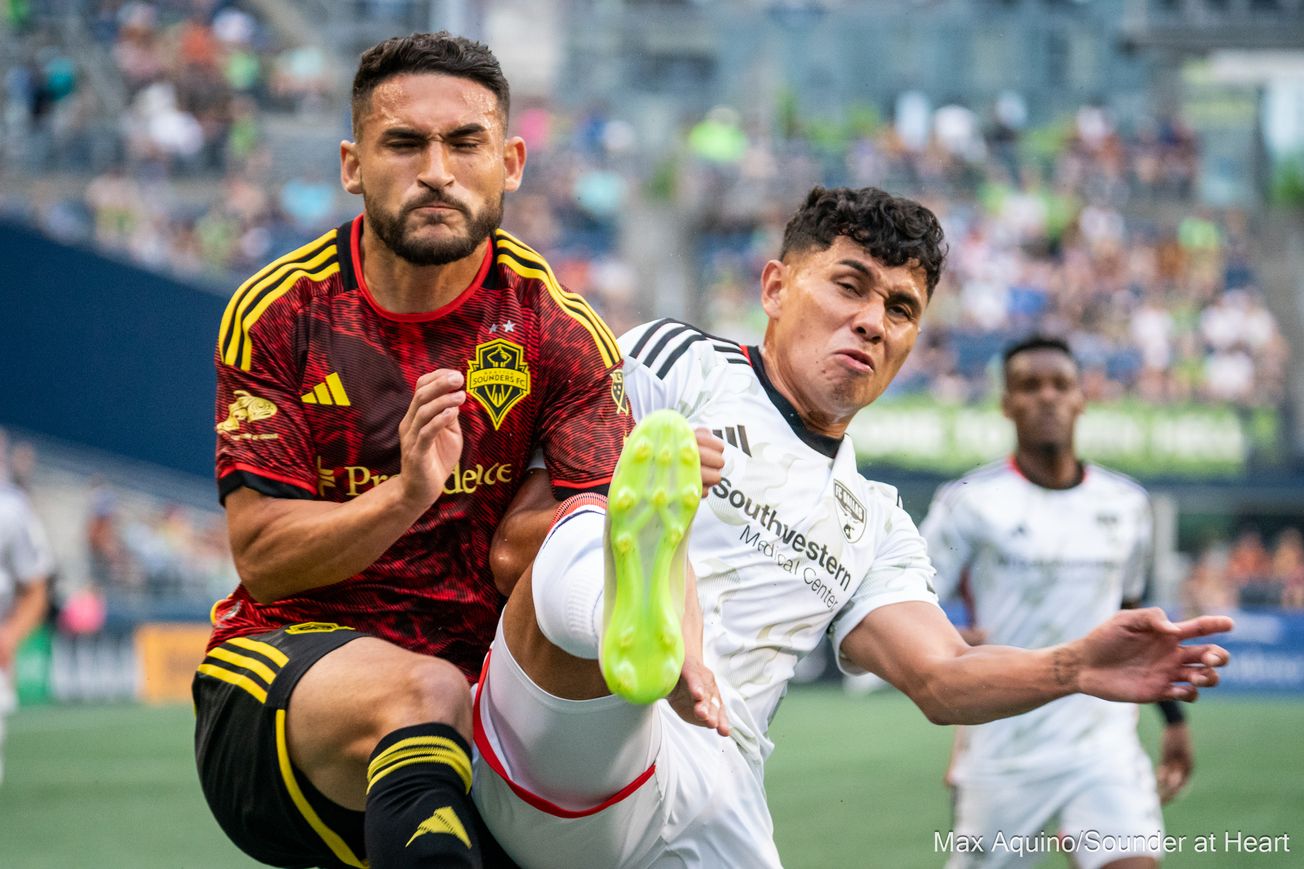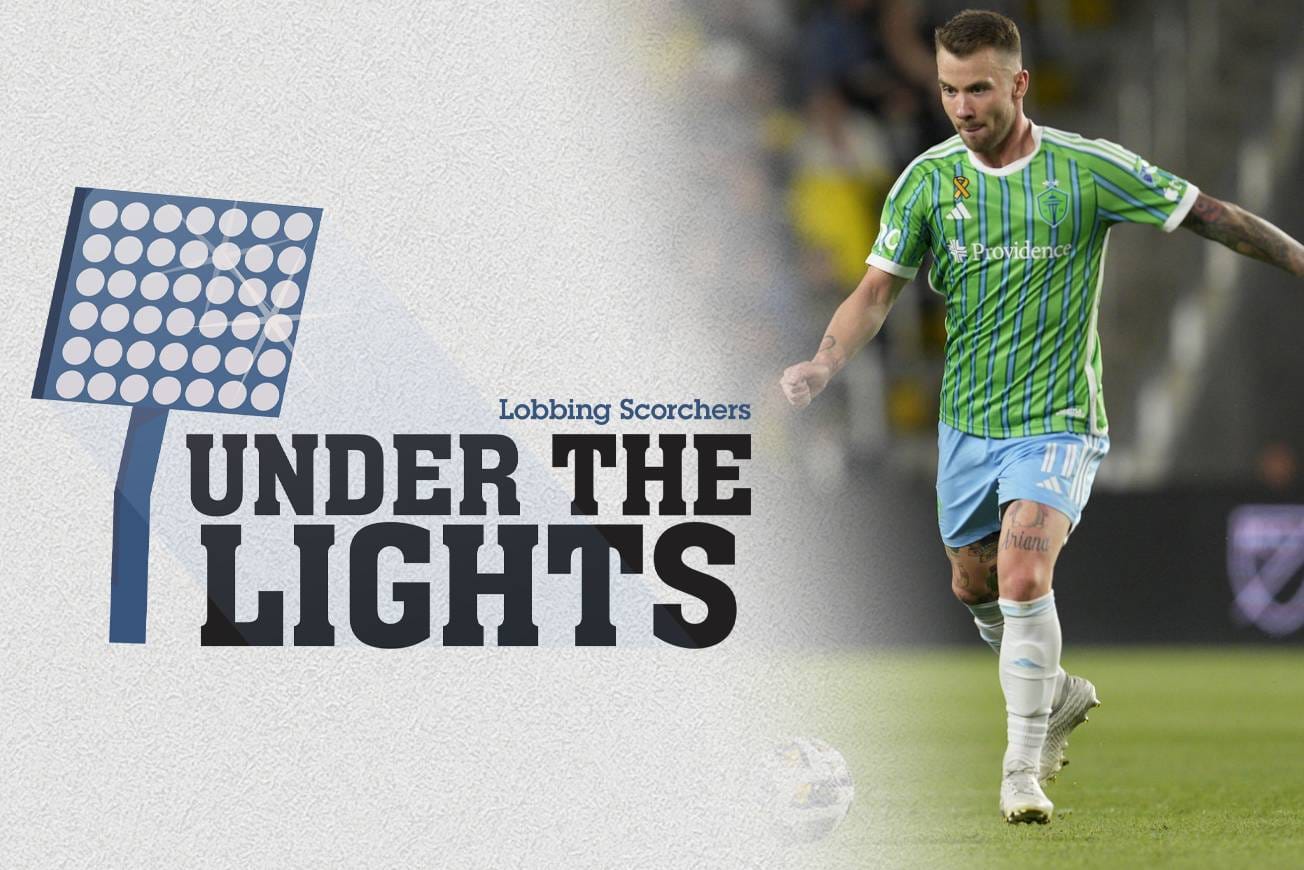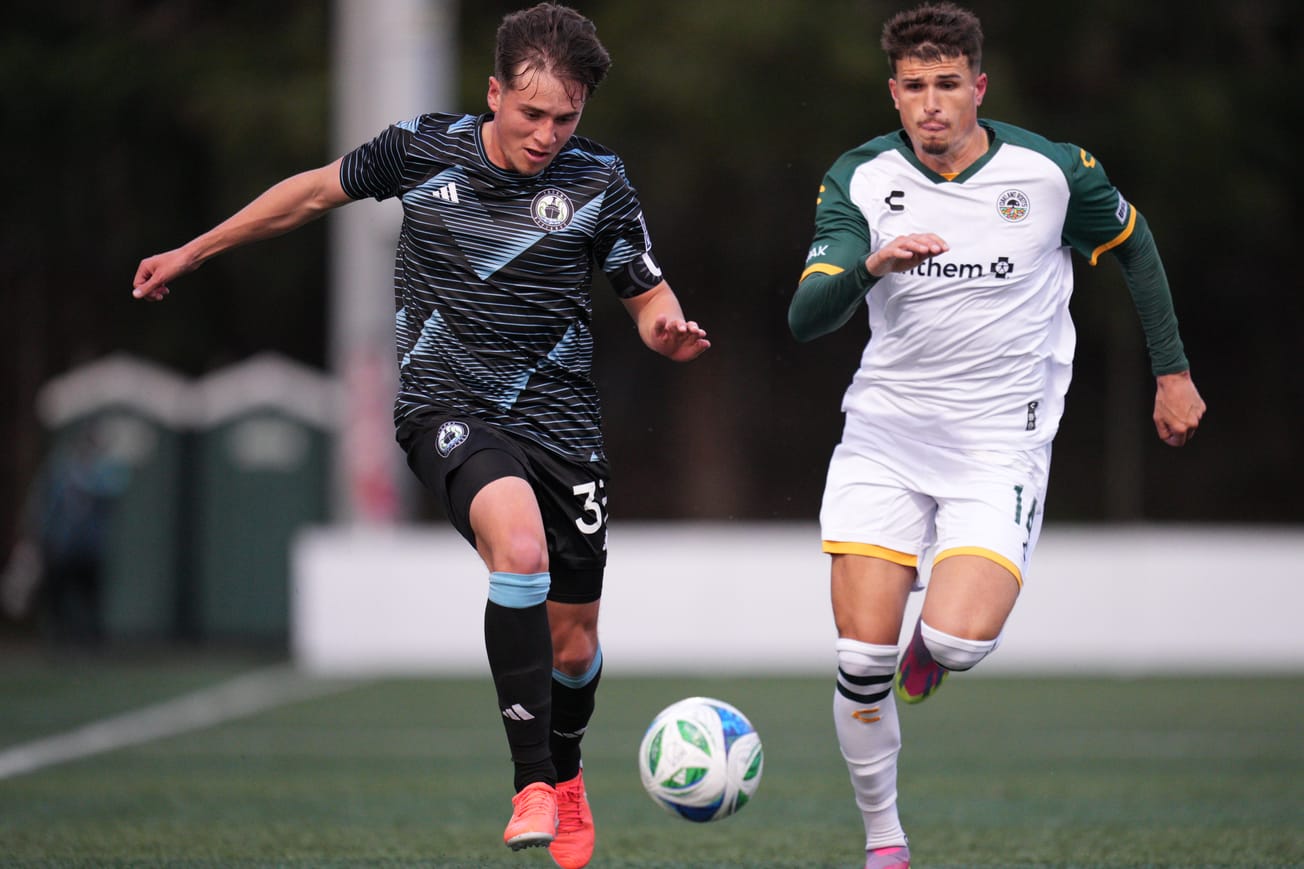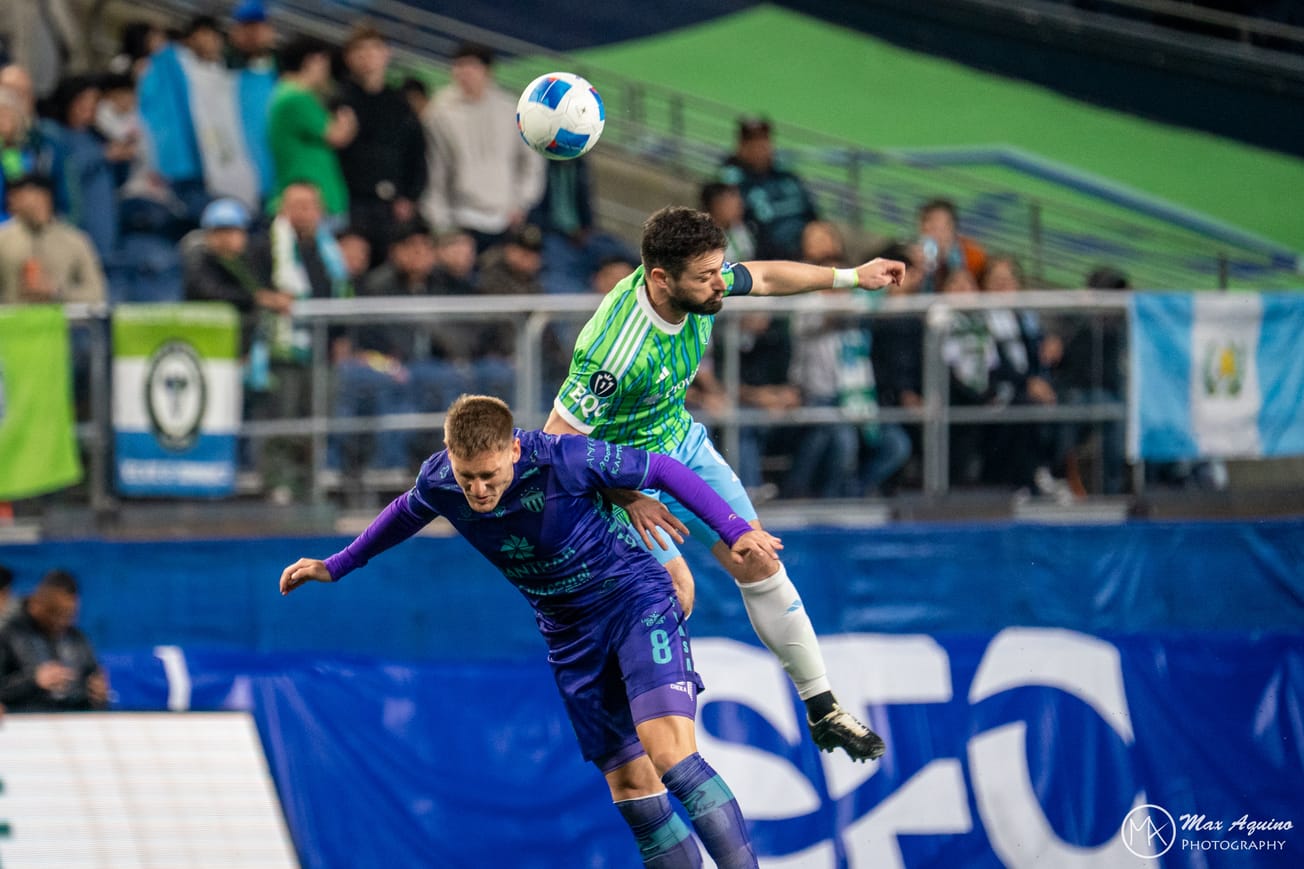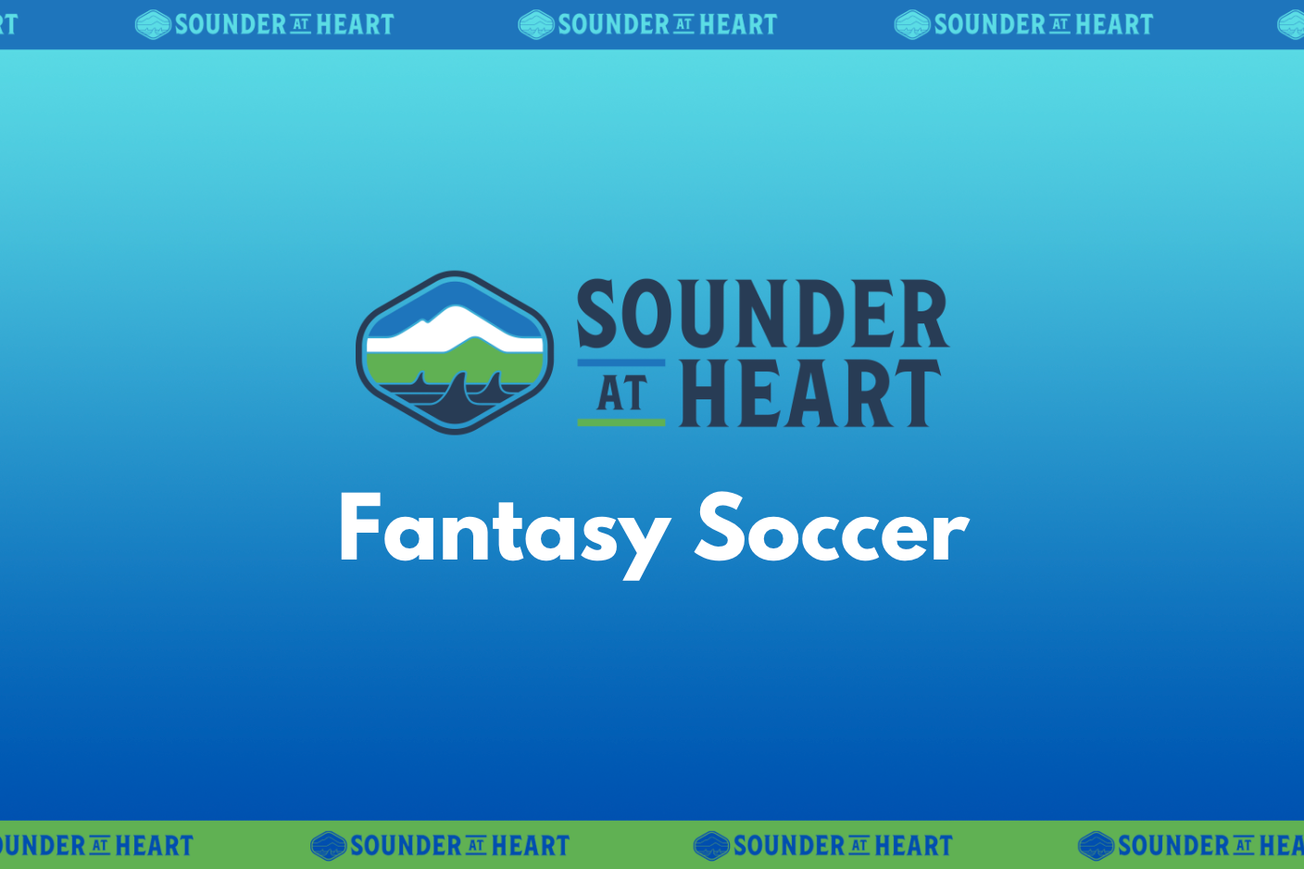The good and bad parts of this Seattle Sounders’ season can be pretty easily identified by one factor: whether or not Cristian Roldan is consistently available. Following the unfortunately short Club World Cup run, the Sounders were soaring in MLS as they put together a 5-1-1, +12 run in the opening seven games of the season bookended with high-scoring performances paired with clean sheets at home.
During that run, the team showcased an exciting system of play, featuring an at times suffocating counter-press and some interesting rotations in and out of possession that got the best out of everyone on the field. That counter-press system seemed to create something of a virtuous cycle: with everyone working to win the ball back when possession was turned over, players seemed to have a little more confidence when picking out passes or making runs, and did so instinctively rather than trying to pick out the right option; if a play didn’t come off, possession was lost in the middle or final third and likely won back in a similar area, meaning that the team had still moved the ball down the field and a new attack was started from even closer to the opponent’s goal. When those passes or moves did come off, they caught opponents on the back foot as players like Jackson Ragen removed huge swaths of the other team from the play as he found the likes of Jordan Morris or Cristian Roldan in behind.
The bad news — from an on-field perspective as well as a personal and human level — is that, following Seattle’s 3-0 win over high-flying newcomers St. Louis City SC, Cristian Roldan missed just short of two months due to a concussion suffered during that game. Between that stretch, joining the USMNT for the Gold Cup, and dealing with a second concussion he’s made just 10 MLS appearances this season. With 10 league games remaining, Cristian Roldan has only played 802 MLS minutes, meaning he’s likely to play the fewest minutes in a season since his first with the Sounders in 2015.
In Cristian’s absence, there have been glimpses of the collected talent present in the squad — that 3-2 road win over the Vancouver Whitecaps game, for example — but more often than not even when the rest of the team has been healthy and available the Sounders have looked less than the sum of their parts. The defense hasn’t been cohesive or a collective effort, sloppy mistakes and lapses in concentration have been punished, and the attack has frequently been predictable.
Despite a group of attacking players with a mix of styles and skills that should allow for a range of approaches, there’s rarely been any deviation from playing balls in behind the defense for Léo Chú to run onto. Once he gets there, he hits a cutback or a cross into the penalty area, and when he has a running partner or two who can keep up with him like Jordan Morris (or Cristian Roldan) that’s been a pretty successful approach. When those attacks were being sprung from closer to the opponent’s goal, or as a later step to a more gradually built possession that moved the whole team down the field, that particular move worked all right as well, since it allowed more players to pack the box with targets for Chú’s final pass. Lacking Cristian and Jordan as running mates, though, Chú has been left without anyone who can keep up with his runs. To compound the issue, without Cristian’s clever and constant off-ball movement to create space for himself and others, the team has resorted early and often to pinging balls out to the left for Chú.
The impact of Roldan’s absence on the attack is pretty clear. He’s averaged a combined 9.7 goals and assists per season since 2016, and his mere presence provides a level of balance to the attack that so far no one else on the roster seems to offer. The attack isn’t the only area that’s suffered, and it shows up in the eye test and in the numbers. That initial seven-game run represents 29% of the team’s total league games played so far. I mention that to contextualize some stats that I think are descriptive of the difference between how the team was playing during that run and how they’re playing now.
For starters, let’s consider that counter-press. It wasn’t the most aggressive of counter-presses, but it was effective. Through 24 league games, Seattle sit in 12th for tackles in both the middle and attacking thirds of the field (144 and 45, respectively). That’s fine, someone has to be in the middle of the pack, but it represents a meaningful drop from that opening group of games. 50 of those middle-third tackles (roughly 35%) and 16 of the attacking third tackles (about 36%) came during those seven games. To me, that represents a team that’s much tougher to play against, putting opposition defenses under significantly more pressure both literally and figuratively.
That pressure isn’t just about tackles, though, as the goal is regaining or retaining possession. The Sounders are among the best in the league at recovering the ball, currently sitting fourth in the league with 1,349 recoveries, but there’s been a similar drop from the level shown in the opening games in that category as well. As the counter-press dropped off or was abandoned, the team’s gone more direct when they attack relied more heavily on crosses. Although Cristian Roldan is a great player, regardless of where on the field he’s being deployed, the shift in approach and system is the kind of thing that shouldn’t be predicated on one single player. That feels especially true of a system that is built on collective effort and whole-team defense.
I can’t say whether the team is trying and failing at implementing the system of play from those first seven games, but it really doesn’t feel like it having watched the subsequent 17 league games and the two brutal Leagues Cup games. What seems more likely is that Brian Schmetzer and his staff have determined that for some reason the system doesn’t work without Cristian Roldan, and that seems like a problem.
Cristian is something of a force multiplier. That term was one that Garth Lagerwey was especially fond of using to describe João Paulo, whose skillset allowed for the players around him to reach another level as they focused on the greatest strengths in their own games. Roldan’s skills and work rate allow for a similar rising of the tide, but there’s something more intangible about his impact. When Roldan is on the field, the players around him seem to put in an extra 10-20% more effort. They know that he’s going to give everything he has to help win the ball back or open up space for them, and so they’re more willing to return the favor. The dominos fall throughout the entire field as each player works all the harder for the players around them, and without him there the chain breaks.
Instead, with no one filling the gap consistently, a negative cycle replaces the virtuous cycle that the counter-press previously created. Where the collective effort allowed for better, more instinctive decision-making and seemingly increased success in high-leverage situations, as the team has struggled to get out of their rut players have opted for more individual efforts. The attack oscillates between plodding possession and hero ball, with no runs or movement in support to create space or passing options and players either afraid of getting burned in transition or diving in unnecessarily as they try to save a play on their own. Add in the incredibly bad luck or bizarre Space Jam-style power stealing that has afflicted the team’s non-Jordan Morris strikers and you’ve got a remarkable recipe for a team that just can’t reach the heights the individual ingredients seem to promise.
The good news is that this is all presumably solvable (I think)! The season has been jam-packed, with breaks coming few and far between since preseason began ahead of the Club World Cup in February. We’re now two weeks through a three-week break following the team’s elimination from Leagues Cup, they’re getting everyone healthy, and have had more time on the training ground to get tactics and mechanics figured out than they have since preseason. That’s all good! If the problems are solvable, that’s what they need to solve them. Now we have a week before we get the first indications of whether they were able to figure things out. If they can put it all together again, this is still a team capable of dominating in this league and making one last run at silverware with this group of players. If not, well, we have about 20 games of what that looks like.


